Muscle Protein

How much protein do I need for muscle recovery ?
Protein is vital for muscle recovery, especially after intense workouts. Sedentary adults need 0.8g/kg, while athletes require more. Timing and quality of protein intake matter. Tips include dietary variety, supplementation if needed, meal planning, and monitoring intake.

Is it necessary to follow a high-protein diet for strength training
A high-protein diet can be beneficial for strength training, but it is not absolutely necessary as long as enough protein is consumed to support muscle growth and repair. Reasons for a high-protein diet include muscle repair and growth, increased metabolism, satiety, and improved recovery. However, the amount of protein needed varies based on individual factors, and general guidelines for intake during strength training are 0.8-1.2 grams per kilogram of body weight, with a source of protein consumed within 30-60 minutes after a workout. High-quality sources of protein should also be chosen.

What should I eat after a workout to build muscle
After a workout, it is important to provide the body with nutrients for muscle repair and growth. Protein-rich foods like chicken breast and Greek yogurt are essential for muscle growth. Complex carbohydrates like sweet potatoes provide sustained energy. Healthy fats from sources such as avocados and nuts help absorb vitamins. Staying hydrated with water is crucial for muscle function. A balanced diet with fruits, vegetables, and fiber supports long-term muscle health.
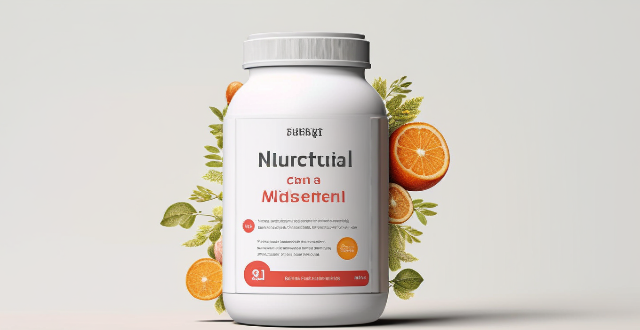
How do sports nutrition supplements affect muscle recovery after a workout ?
Sports nutrition supplements can significantly support muscle recovery post-workout by providing essential nutrients. Protein supplements like whey and casein replenish amino acids, while carbohydrate supplements such as BCAAs and beta-alanine reduce soreness and fatigue. Other nutrients, including creatine, glutamine, and vitamins/minerals, further enhance recovery. A structured supplementation routine, tailored to individual needs, can optimize muscle recovery and athletic performance.

What kind of foods should I eat to aid in muscle recovery
Eating a balanced diet that includes carbohydrates, protein, healthy fats, water, and vitamins and minerals is essential for muscle recovery after exercise. Complex carbohydrates provide energy for muscles during recovery, while protein helps repair and grow them. Healthy fats support overall health and reduce inflammation. Drinking enough water flushes out toxins and maintains a healthy fluid balance in the muscles. Vitamins and minerals, such as vitamin C, vitamin D, and iron, are also important for muscle function and recovery.

How can I ensure that I'm getting enough protein in my diet ?
Protein is crucial for muscle growth, hormone regulation, and immune support. To ensure you get enough, calculate your needs, choose quality sources like lean meats and legumes, include protein in every meal, snack smartly, read nutrition labels, and consider supplements if needed. Variety and quality are key.

Can sports supplements help with muscle recovery after workouts ?
Can Sports Supplements Help with Muscle Recovery After Workouts? Physical exercise and workouts are essential for maintaining a healthy lifestyle, but they can also lead to muscle fatigue and soreness. Many athletes and fitness enthusiasts turn to sports supplements to aid in muscle recovery after workouts. But do these supplements really work? Let's explore the topic in detail. What are Sports Supplements? Sports supplements are dietary products designed to enhance athletic performance, improve physical health, and support recovery from exercise. They come in various forms, including powders, pills, and liquids, and can be consumed before, during, or after workouts. Types of Sports Supplements - Protein Powders: Help in muscle repair and growth. - Creatine: Boosts energy production in muscles. - Branched-Chain Amino Acids (BCAAs): Support muscle building and recovery. - Glutamine: Aids in muscle recovery and immune function. - Omega-3 Fatty Acids: Reduce inflammation and promote heart health. - Multivitamins/Minerals: Support overall health and wellness. How Do Sports Supplements Help with Muscle Recovery? - Protein Powders: Consuming protein powders after a workout can help replenish depleted amino acids, leading to faster recovery times. - Creatine: Increases the availability of phosphocreatine, which helps regenerate ATP more quickly during high-intensity exercises, reducing muscle fatigue and aiding in recovery. - BCAAs: Consuming BCAA supplements before or during workouts can reduce muscle damage and speed up recovery processes. - Glutamine: Supports muscle recovery by helping maintain cellular volume and preventing muscle breakdown. It also supports immune function, which is important for overall health and recovery. - Omega-3 Fatty Acids: Have anti-inflammatory properties that can help reduce muscle soreness and stiffness after workouts. They also support heart health, which is crucial for athletes who engage in cardiovascular exercises. - Multivitamins/Minerals: While not directly related to muscle recovery, consuming multivitamins or minerals can support overall health and wellness, which indirectly aids in recovery processes. Are Sports Supplements Safe? While sports supplements can be beneficial for some individuals, it's important to note that they are not regulated by the Food and Drug Administration (FDA). This means that their safety and effectiveness may vary between brands and products. It's always best to consult with a healthcare professional before starting any supplement regimen. Additionally, relying solely on supplements without proper nutrition and rest can be counterproductive. A balanced diet, adequate sleep, and proper hydration are still key components of effective muscle recovery.

What role does protein play in a healthy diet ?
Protein is an essential nutrient that plays a crucial role in maintaining a healthy diet. It contributes to tissue growth and repair, enzyme and hormone production, immune system function, fluid balance, and energy provision. Consuming a variety of protein sources is important to ensure all necessary amino acids are obtained.

How do I prevent muscle soreness after a long run ?
To prevent muscle soreness after a long run, you should warm up properly, stretch your muscles, drink plenty of water, eat a balanced diet, and rest between workouts. Following these tips can help reduce the risk of injury and improve performance in future runs.

How does sleep deprivation affect muscle recovery after workouts ?
Sleep is crucial for muscle recovery after workouts, as it allows the body to repair and rebuild damaged muscle tissue. Sleep deprivation reduces growth hormone production and protein synthesis, leading to inefficient muscle recovery. Strategies for improving sleep quality include establishing a consistent sleep schedule, creating a relaxing bedtime routine, avoiding screens before bed, getting plenty of exercise, and creating a comfortable sleeping environment. By prioritizing sleep, you can improve muscle recovery and overall health.

How should I incorporate sports nutrition supplements into my daily routine for optimal results ?
The text provides a comprehensive guide on how to incorporate sports nutrition supplements into your daily routine for optimal results. It starts with understanding the basics of sports nutrition and assessing individual goals and needs. It then discusses different types of supplements, their timing of intake, and how to incorporate them into various parts of the day. The text emphasizes the importance of monitoring and adjusting supplement use based on personal experiences and advises consulting with a professional for personalized advice.

What are the best sources of lean protein for breakfast ?
Including lean protein in your breakfast can help you feel fuller for longer and reduce the likelihood of overeating later in the day. Some of the best sources of lean protein for breakfast include eggs, Greek yogurt, cottage cheese, tofu, nut butters, quinoa, turkey bacon, chia seeds, edamame, and roasted chickpeas. These foods are high in protein and other essential nutrients like calcium, fiber, and healthy fats. They can be prepared in various ways and combined with other ingredients to create a balanced and satisfying breakfast.
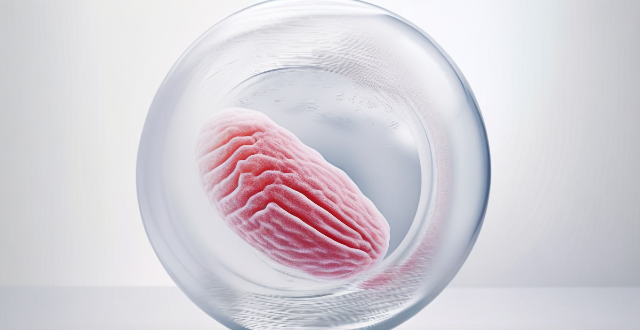
How can I prevent muscle soreness after a workout
Stretching, warm-up, hydration, nutrition, rest, massage, ice therapy, and avoiding overtraining are all important steps to help prevent muscle soreness after a workout.

What are the best post-workout recovery techniques
The text discusses the importance of post-workout recovery for achieving optimal physical performance and preventing injuries. The author recommends several techniques including stretching, hydration, protein intake, foam rolling, massage therapy, active recovery, and sleep. Stretching improves flexibility and reduces muscle soreness, while hydration replaces lost fluids during exercise. Protein intake helps repair and rebuild muscles, foam rolling relieves muscle tension, massage therapy reduces inflammation, active recovery promotes circulation, and sleep allows the body to repair and rebuild itself. Incorporating these techniques into a routine can help improve performance and prevent injuries.
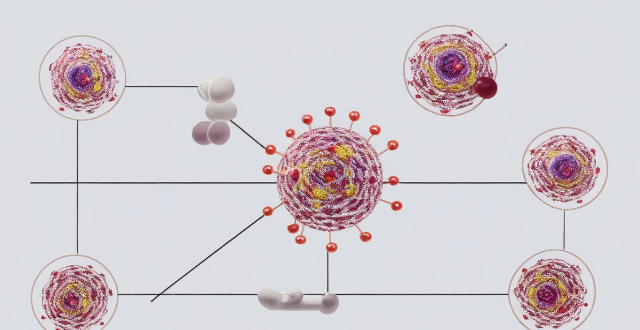
How does exercise affect muscle growth and repair at a cellular level ?
Exercise stimulates protein production for muscle growth and repair, increases satellite cells for new muscle fibers, boosts blood flow for nutrient delivery and waste removal, and promotes the release of growth factors like IGF-1.

How do I balance protein and carbohydrates in my breakfast ?
Balancing protein and carbohydrates in your breakfast is essential for maintaining a healthy diet. Here are some tips on how to achieve this balance: 1. Choose a protein source (e.g. eggs, Greek yogurt, cottage cheese, tofu, nut butter). 2. Add complex carbohydrates (e.g. whole grain bread or toast, oatmeal, fruits, vegetables). 3. Incorporate healthy fats (e.g. avocado, nuts, seeds, olive oil). 4. Consider portion sizes and use measuring cups or a food scale if needed. 5. Plan ahead by prepping ingredients or preparing meals in advance. 6. Be mindful of added sugars and choose whole, unprocessed foods whenever possible.

How can I make my breakfast more protein-packed ?
To make your breakfast more protein-packed, start with a high-protein base like eggs or Greek yogurt. Add nuts and seeds for extra protein and healthy fats. Incorporate legumes such as chickpeas or lentils into savory breakfast dishes. Don't forget dairy products like milk and cheese for added protein. Get creative with grains by combining them with other protein sources like overnight oats with Greek yogurt and nuts. By using these strategies, you can increase the protein content of your morning meals while keeping them interesting and satisfying.
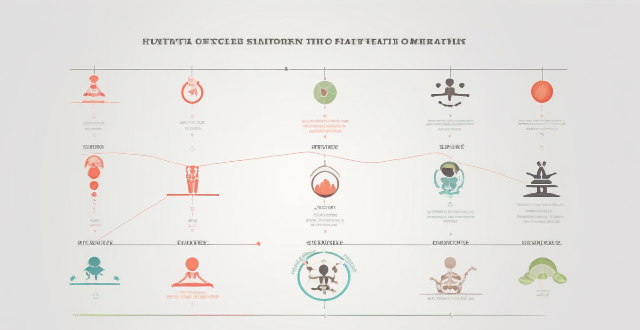
Are there any specific training methods that celebrities use for muscle building and fat loss ?
Celebrities use a variety of training methods and nutrition plans to achieve their desired physique, including High-Intensity Interval Training (HIIT), weightlifting, cardiovascular exercise, Pilates and yoga, functional training, and strict nutrition plans. These methods are designed to burn fat, build muscle, improve flexibility and balance, and support overall fitness and mobility. However, individual results may vary depending on various factors.

What role does muscle strength training play in preventing chronic diseases ?
Muscle strength training can help prevent chronic diseases such as heart disease, stroke, type 2 diabetes, and some types of cancer. It also has many benefits for physical and mental health, including improved cardiovascular health, weight management, better bone health, reduced risk of type 2 diabetes, enhanced mental health, increased self-esteem, improved physical function, lowered blood pressure, and cancer prevention. To get started with muscle strength training, it is important to start low and slow, mix up your routine, rest enough, stay hydrated, eat right, and get enough sleep. With dedication and consistency, you can achieve great results!

What are some good sources of protein for a fitness meal plan ?
Including protein-rich foods like chicken breast, salmon, eggs, Greek yogurt, and quinoa in a fitness meal plan can support muscle building and fat loss goals.

What are the best foods to eat before and after a workout ?
Eating the right foods before and after a workout can significantly impact your performance and recovery. Before exercising, opt for easily digestible carbohydrates like whole grain bread or bananas for energy, and include some protein such as Greek yogurt to prevent muscle breakdown. After your workout, focus on replenishing lost nutrients with proteins from lean meats or eggs, and carbohydrates from quinoa or fruits to aid recovery. Hydration is key both before and after exercise; water and coconut water are great choices for maintaining fluid balance. Avoid heavy, fatty, or spicy foods before working out, and steer clear of alcohol and processed foods post-workout.

What role does timing play in consuming nutrients around workouts ?
Timing is crucial for nutrient intake around workouts to maximize benefits and improve health. Pre-workout meals should include carbs, protein, and healthy fats, while staying hydrated is essential. During long workouts, snacks and sports drinks can maintain energy and prevent dehydration. Post-workout recovery focuses on replenishing glycogen stores with carbs, supporting muscle repair with protein, and rehydrating. Proper timing of meals and snacks before, during, and after exercise optimizes workout benefits and overall fitness.
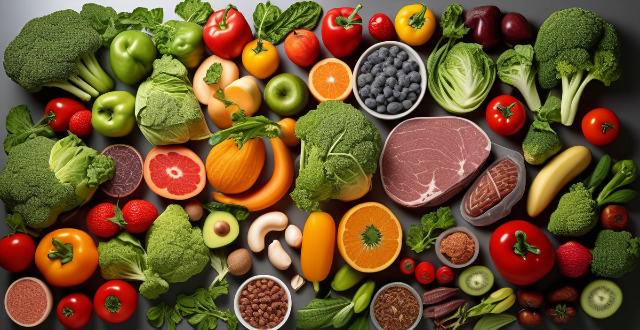
What is the ideal meal plan for an athlete's daily routine ?
An athlete's meal plan should include a variety of complex carbohydrates, lean proteins, healthy fats, and fruits & vegetables to support their training goals, optimize performance, and aid in recovery. The ideal meal plan includes breakfast with sustained energy sources like whole grains and fruits; snacks such as trail mix or protein shakes to keep energy levels steady; lunch focusing on lean proteins and leafy greens for muscle repair and nutrient replenishment; afternoon snacks like Greek yogurt or fruit smoothies to avoid energy crashes; dinner emphasizing lean proteins and complex carbs for muscle recovery and glycogen replenishment; and a pre-bed snack with slow-digesting protein and natural sleep aids like cherries or chamomile tea.

Can stretching after exercise prevent muscle soreness ?
Stretching after exercise can help reduce muscle soreness and improve flexibility, but it is important to wait for enough time, choose appropriate stretches, be mindful of pain, and use proper technique.

Can dehydration really cause muscle cramps during physical activity ?
Dehydration can lead to muscle cramps during physical activity due to loss of essential electrolytes and reduced oxygen supply to muscles. Signs of dehydration include thirst, dark urine, fatigue, dizziness, dry mouth, headache, and constipation. To prevent dehydration and muscle cramps, stay hydrated, eat a balanced diet rich in electrolytes, stretch before and after exercise, gradually increase intensity, and rest when needed.

What are some effective methods for reducing muscle soreness after a workout ?
Effective Methods for Reducing Muscle Soreness After a Workout includes proper warm-up and cool down, staying hydrated and consuming proper nutrition, getting adequate rest and sleep, foam rolling and massage, and heat and cold therapy.

What kind of diet is recommended for women who want to lose weight through exercise ?
Recommended diet for women who want to lose weight through exercise includes lean protein, complex carbohydrates, healthy fats, and plenty of water. It's important to eat a light meal or snack before workouts and refuel with protein and carbohydrates after exercising. Portion control and avoiding empty calories are also crucial for weight loss success.

What are the best sports nutrition supplements for enhancing athletic performance ?
The article discusses the importance of sports nutrition supplements in enhancing athletic performance. It highlights five key supplements that can help athletes improve their performance: 1. Protein Supplements: Essential for building and repairing muscles, protein supplements like whey, casein, and soy protein can support muscle growth, increase strength, and improve body composition. 2. Creatine Supplements: Popular among athletes for increasing muscle mass and improving performance during short, high-intensity exercise. Creatine also enhances recovery between workouts. 3. Beta-Alanine Supplements: An amino acid that increases muscle carnosine levels, beta-alanine can improve endurance capacity during high-intensity exercise, reduce fatigue, and enhance muscle strength and power. 4. Caffeine Supplements: A natural stimulant that can increase energy levels, reduce fatigue, improve mental focus, and enhance endurance capacity during prolonged exercise. 5. Multivitamins and Minerals Supplements: Important for overall health and well-being, multivitamins and minerals can help prevent nutrient deficiencies that could impair performance and enhance immune function and recovery from training. The article emphasizes the importance of choosing safe and effective supplements that meet the specific needs of an athlete and consulting with a healthcare professional or registered dietitian before starting any new supplement regimen.